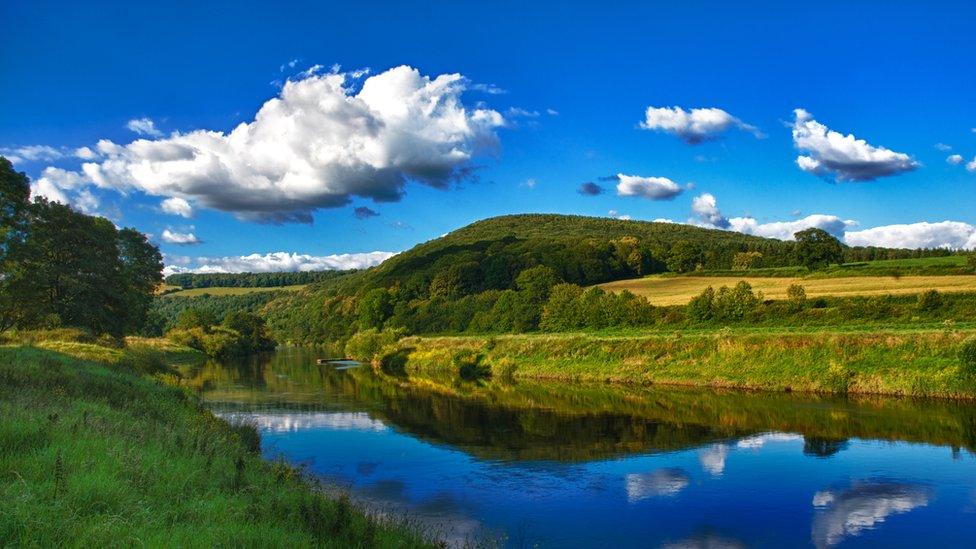River Wye: Judicial review granted over agricultural pollution
- Published
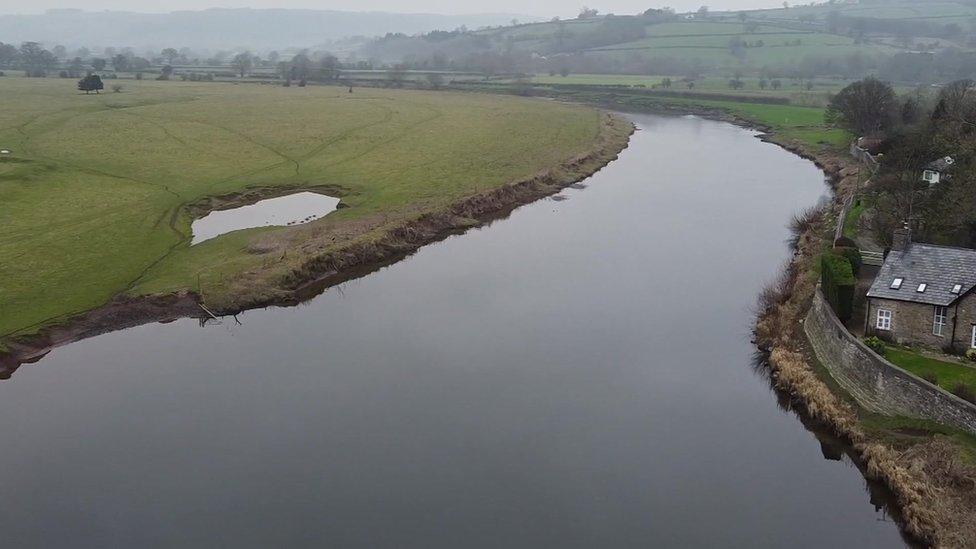
The River Wye was in a "very poor condition", the court heard
A judge has granted a judicial review into the way the Environment Agency (EA) in England enforces agricultural pollution laws.
River Action told the High Court in Cardiff the EA had failed to protect the River Wye from destructive levels of organic manure.
A lawyer for the EA said the agency had put extra resources into the area to help prevent pollution.
Mr Justice Lane granted the review on all the grounds raised by River Action.
The court heart from the environmental group's barrister David Wolfe KC who said there was no dispute the river, which flows through Wales, Herefordshire and Gloucestershire, was in a "very poor condition".
A large amount of organic manure was spread over the land to help the poultry industry's rapid growth near the river, which led to a substantial increase in levels of phosphorus in the soil.
When washed into the river by rainwater, the phosphorus causes prolonged algal blooms which suffocate plants and wildlife by sucking up all the oxygen and turning the water an opaque green.
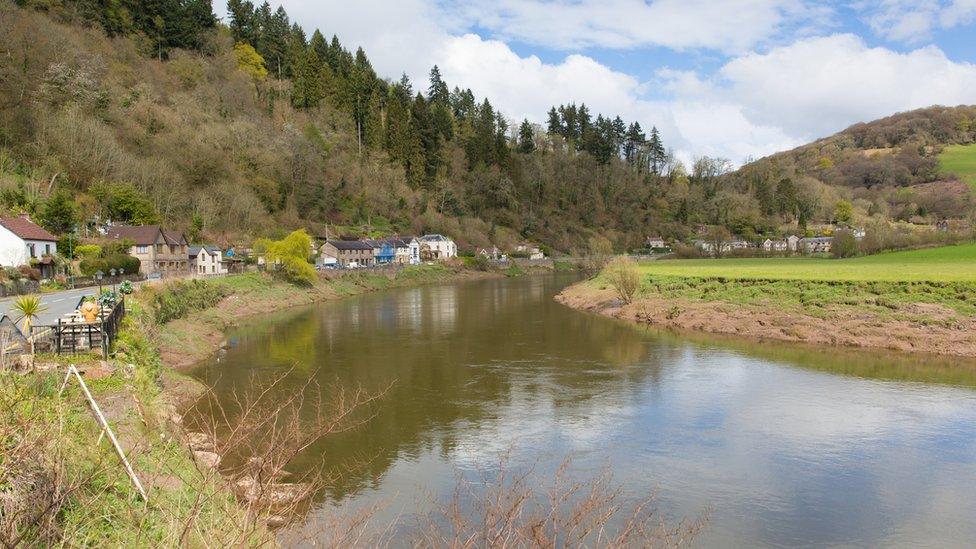
The Rive Wye is the fourth-longest river in the UK and runs through Wales and England
The EA has a duty to enforce river pollution laws known as the "farming rules for water" and to prosecute where appropriate.
But the court was told there were differences between the written law and the guidance from the secretary of state for the interpretation of that law.
The statutory guidance allowed fertiliser to be applied to fields at times when the law prevented it.
Mr Wolfe said the EA would not carry out enforcement action as long as the guidance was met and in place.
He argued the agency's policy meant farmers would be told they would not be prosecuted if they were breaking the law but following the guidance.
'Significantly contrary'
The agency's barrister Charles Streeten argued the EA had to take the guidance into account on decisions or be accused of an "abuse of process".
Their policy said in certain circumstances they would not "normally prosecute" but it did not mean they could not, he added.
Since April 2021, there were 6,000 cases of informal enforcement action and 141 cases of formal enforcement action, the court heard.
Mr Streeten added the agency had directed extra resources to the Wye area to help prevent pollution.
As he granted permission, Mr Justice Lane said it could be argued the policy was influenced by parts of the guidance "significantly contrary" to the wording of the regulations.
"Reading everything fairly as a whole may carry weight in due course but it doesn't seem to me that it enables the defendant to avoid the claimant's challenge," he added.

Follow BBC West Midlands on Facebook, external, X, external and Instagram, external. Send your story ideas to: newsonline.westmidlands@bbc.co.uk
- Published12 October 2023
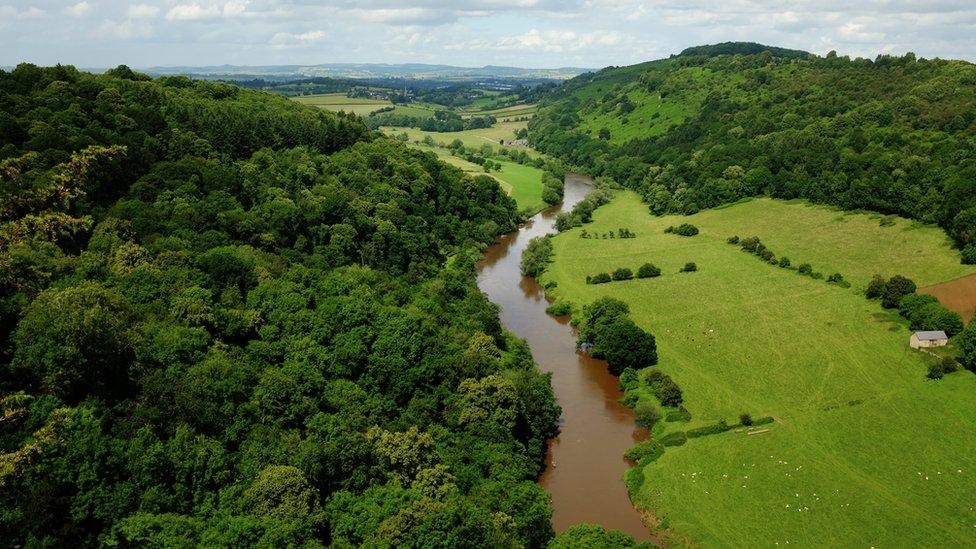
- Published16 September 2023
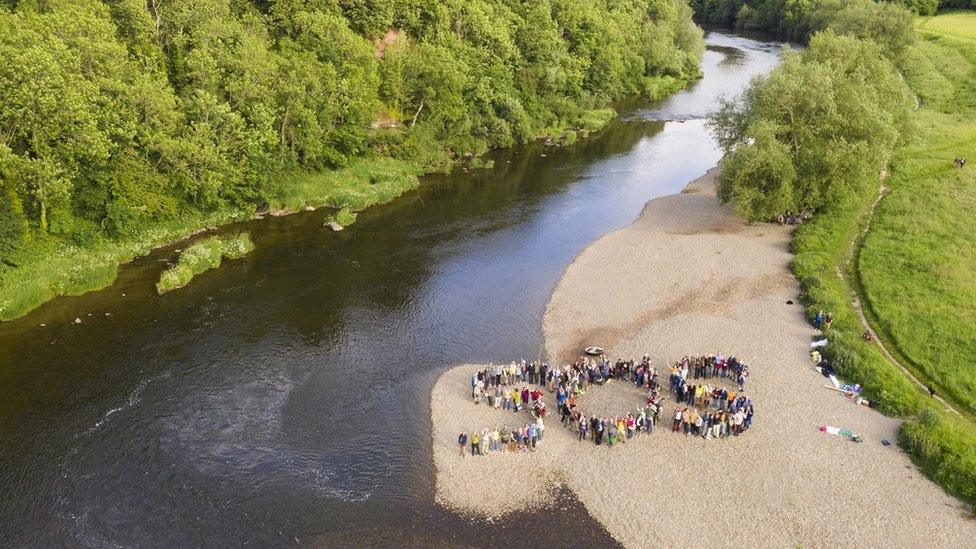
- Published26 May 2023
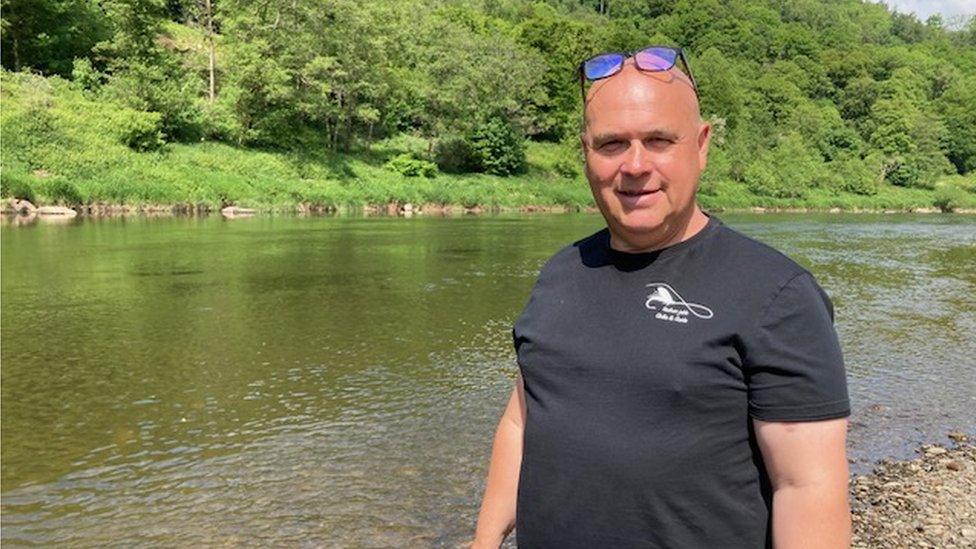
- Published14 March 2023
